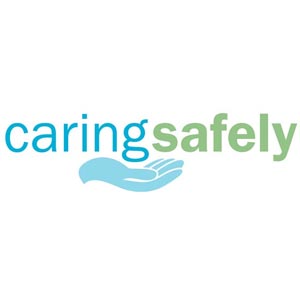For Morteza Gorgzadeh, it was just another day at work.
A housekeeper with the Support Services team at Toronto Western Hospital, Morteza was going about his daily tasks and doing what he could to make the patients on the 8A General Internal Medicine in-patient unit feel more comfortable.
"I always make sure to say hello and get to know the patients in the different rooms," says Morteza.
"My job is to help create an environment where patients can eat, feel comfortable, feel better so that they can go home. I take that seriously."
 But that day, one of the patients who had been on the unit for a while didn't look very comfortable. When Morteza entered the room, he saw him sprawled sideways across the bed, his oxygen mask half off his face.
But that day, one of the patients who had been on the unit for a while didn't look very comfortable. When Morteza entered the room, he saw him sprawled sideways across the bed, his oxygen mask half off his face.
"It looked like he was sleeping but when I went to see if he was okay, I noticed that he was breathing heavily and foaming at the mouth," Morteza recalls. "He didn't look well to me."
Morteza went to get a nurse who, after checking the patient, gave him some medication.
This particular patient's time on the unit had been a bit challenging. He was prone to wandering around, taking food from other patients and being combative with staff. It wasn't unusual for him to take a time out and nap.
"He was all over the place," Morteza says. "It was very challenging to interact with him and I hadn't connected with him in the way I usually did with patients."
But Morteza was concerned and, after the medication had been administered, he stayed with the patient while the nurse called for assistance.
"Even after the medication, he still didn't seem right to me," Morteza recounts. "He was still breathing heavily and foaming at the mouth so when the nurse came back, I told her something still seemed wrong."
Something was wrong. The patient, who suffered from Chronic Obstructive Pulmonary Disease (COPD), wasn't asleep, he was unconscious. When we lie down, our oxygen levels naturally decrease, but this patient's levels had gone dangerously low and no one could wake him.
The patient was immediately intubated and transferred to TW's Intensive Care Unit (ICU). Had there been any further delay, he would likely have died from a lack of oxygen.
When asked how he feels about saving someone's life, Morteza brushes it off.
"Honestly, for me it's nothing," he says. "What was amazing was when the patient came back to the unit and when he saw me he said: 'thank you, man.' Someone had told him it was me who helped him, and he remembered."
Helping patients is how Morteza frames his role as a housekeeper on 8A. Though he sometimes feels he's not always seen as part of the team, he believes that he is, and that his unique perspective and interaction with patients adds to their care in its own way.
"Housekeepers are usually in the room with patients when no one else is, when the clinical team is done their work," he says. "We need to pay attention because we might notice things that could be important."
It's advice that he imparts to his fellow housekeepers who are sometimes the only other visitors patients see other than their care team.
"I always tell my co-workers this is not a job like any other job," he says. "We are dealing with other human beings: ourselves, our families, friends, neighbours.
"This is not like working in a factory where work is done at the end of the day, things happen here all the time.
"I see my work from the perspective of the patient," he adds. "How would I want to be treated? With respect and doing what I can so they can leave the hospital."
That includes advocating for safety issues that could put patients at risk. Morteza attends the unit's daily Safety Huddle and makes sure to bring up items of concern.
One item was the issue of tray tables not being returned to patient rooms. Some patients like to eat their meals sitting outside their room for a change of scenery, and ask to have their tray table brought out so they can sit near the nursing station.
'A perfect example of the contribution that every employee at UHN can make'
But Morteza noticed that after the meal, the tray table wasn't immediately returned to the patient's room.
"It's a risk for cross contamination," he says passionately. "When the table is left outside the room, people touch it: other patients maybe for balance or visitors. And then when it is returned to the room, it's dirty and can be harmful to the patient."
Morteza's speaking up led the unit manager to direct staff to return tables to patient rooms right after their meals.
"Morteza is a perfect example of the contribution that every employee at UHN can make to patient safety regardless of whether they are directly involved in their care," says Kevin White, Nurse Manager, 8A GIM.
"He is known on the unit for the effort he makes with patients," Kevin adds. "He consistently pays attention to the patient environment and brings opportunities for improvement to staff.
"I love having him as part of our team."
For Morteza, it's all part of the job. Whether keeping the unit clean, pointing out safety issues, telling a patient a joke, or even saving someone's life, he does what he can to make a difference.
"I just ask myself, what can I do to help them?" he says. "Even if it's just the smile I have, I will give it to them."
